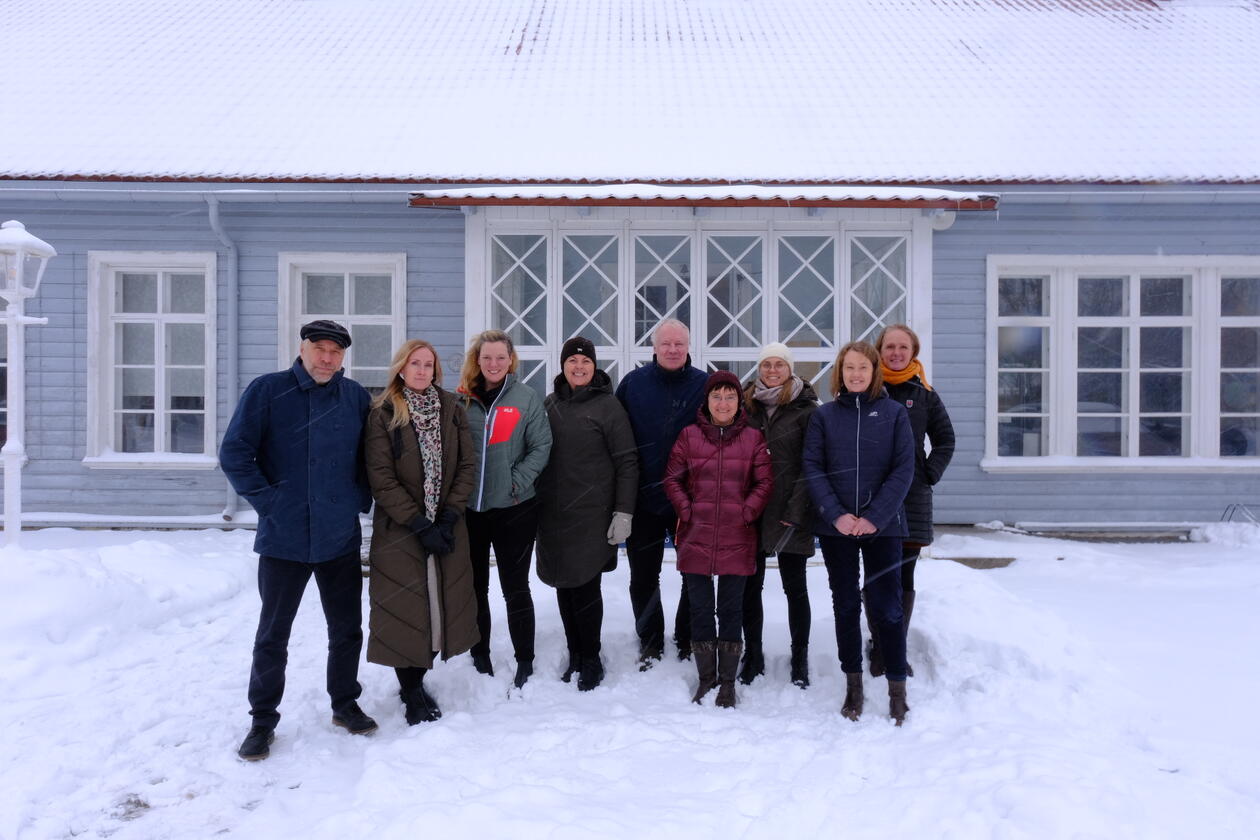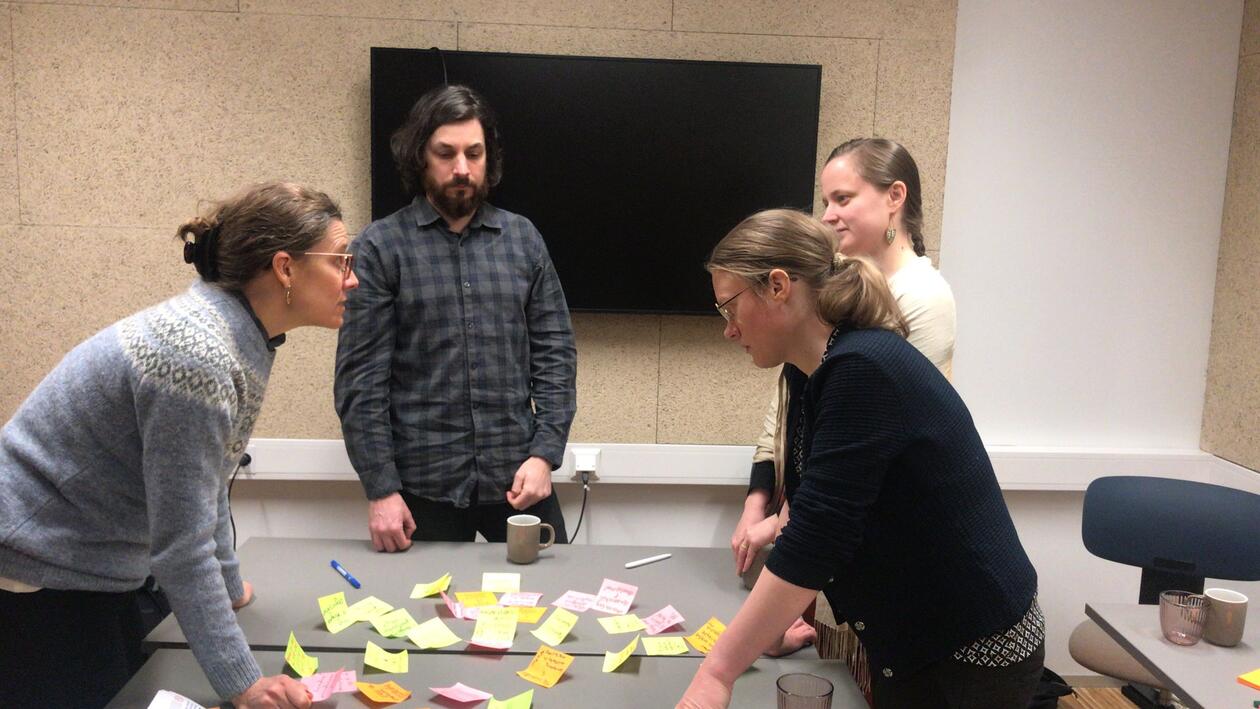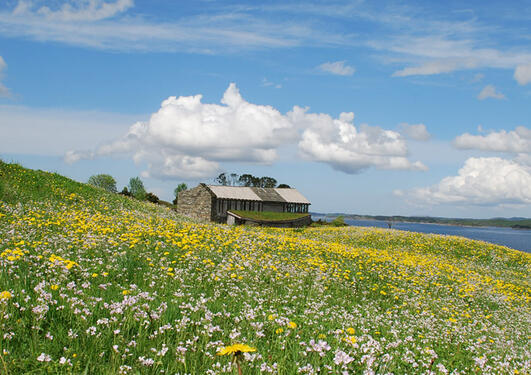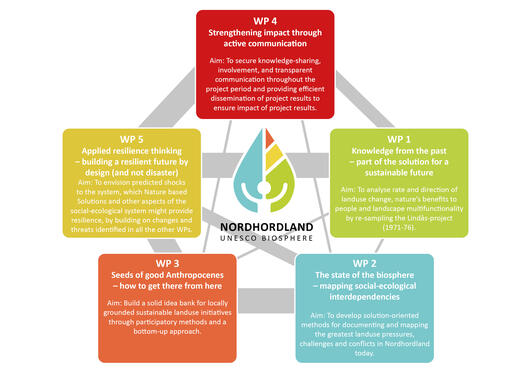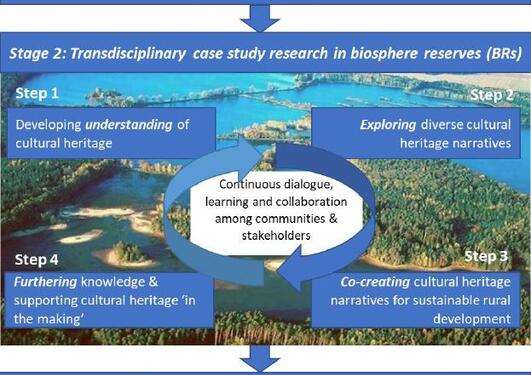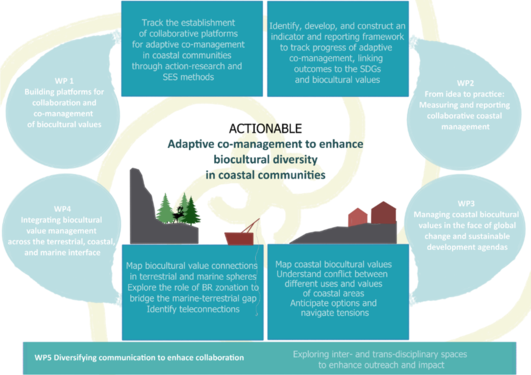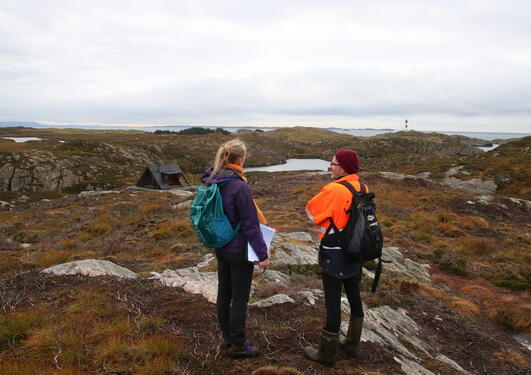What did we do this year?
2023 has been an eventful year for the UNESCO Chair group at the University of Bergen. This year we have graduated three MSc students and one PhD student, started two new projects, taught sustainability science, held many presentations, and not least been part of arranging Norway’s first Biosphere Day in Nordhordland.

Hovedinnhold
The TRADMOD project, led by UNESCO Chair Inger Måren, ended this summer after 4 years. As a conclusion to the project, the group wanted to host a kind of knowledge festival, where we could present and communicate some of our research results. This soon grew into something much bigger, and in collaboration with Region Nordhordland, which is a partner in TRADMOD, we ended up hosting Nordhordland’s (and Norway’s) first Biosphere Day!
Despite the end of a project, there is still plenty keeping us busy. In the BIOSPHERE project we continue mapping natures’ benefits to people and landscape values, but not only in Nordhordland. The study has been extended to the UNESCO Biosphere Kristianstad’s Vattenrike in Southern Sweden, enabling us to compare results and learn from each other. We also continue our collaboration with Alver municipality (the biggest in Nordhordland) and Region Nordhordland to make a resilience assessment of the municipality, in connection to Norway’s obligations to the Kunming-Montreal Global Biodiversity Framework.
Another ongoing project in our group is the international EU funded project CULTIVATE, where we seek to understand how cultural heritage shape sustainable landscapes and societies. I March, the Norwegian team visited the West Estonian Archipelago Biosphere for a CULTIVATE partner meeting. Here we worked with interview data from 2022, concerning experiences with cultural heritage and cultural landscapes from the four European BRs studied in the project. The results are soon to be published in a scientific journal.
This autumn the CULTIVATE project have been mapping how planning processes affects cultural heritage and landscapes, and existing associated conflicts. We continue this work in the new year when we will be hosting our Scottish, Estonian, and Czech project partners for a meeting in our biosphere reserve. We look forward to showing them beautiful Nordhordland.
We are delighted that UNESCO Chair researcher Alicia Barraclough will continue in our group. Alicia has been granted no less than two new research projects: ACTIONABLE and BECOME. ACTIONABLE (funded by the Research Council of Norway) is about adaptive co-management to enhance biocultural diversity and sustainable development in coastal communities, and the EU project BECOME will investigate how the UNESCO biosphere status can be used for the conservation of cultural and natural resources. Both projects use Nordhordland as one of their study areas.
In October, we held a big kick-off meeting for ACTIONABLE with national and international partners at beautiful Fjordslottet on the island Osterøy in Nordhordland. The project will hire a PhD student, who we look forward to including in our group in the new year.
The BECOME project also had it’s first in-person meeting with the leaders of the first work package, from UiB and Stockholm Resilience Centre. Over two days the researchers brainstormed where to take this work package, which focuses on understanding the effectiveness trajectory of over 100 Biosphere Reserves worldwide that have been tracked for 15 years.
BECOME has also hired recent UNESCO Chair PhD graduate Jarrod Cusens as a PostDoc researcher, and we are very happy to have Jarrod staying in the group for the next few years as well.
We look forward to following the development of these two new projects, and continuing our research in 2024!

